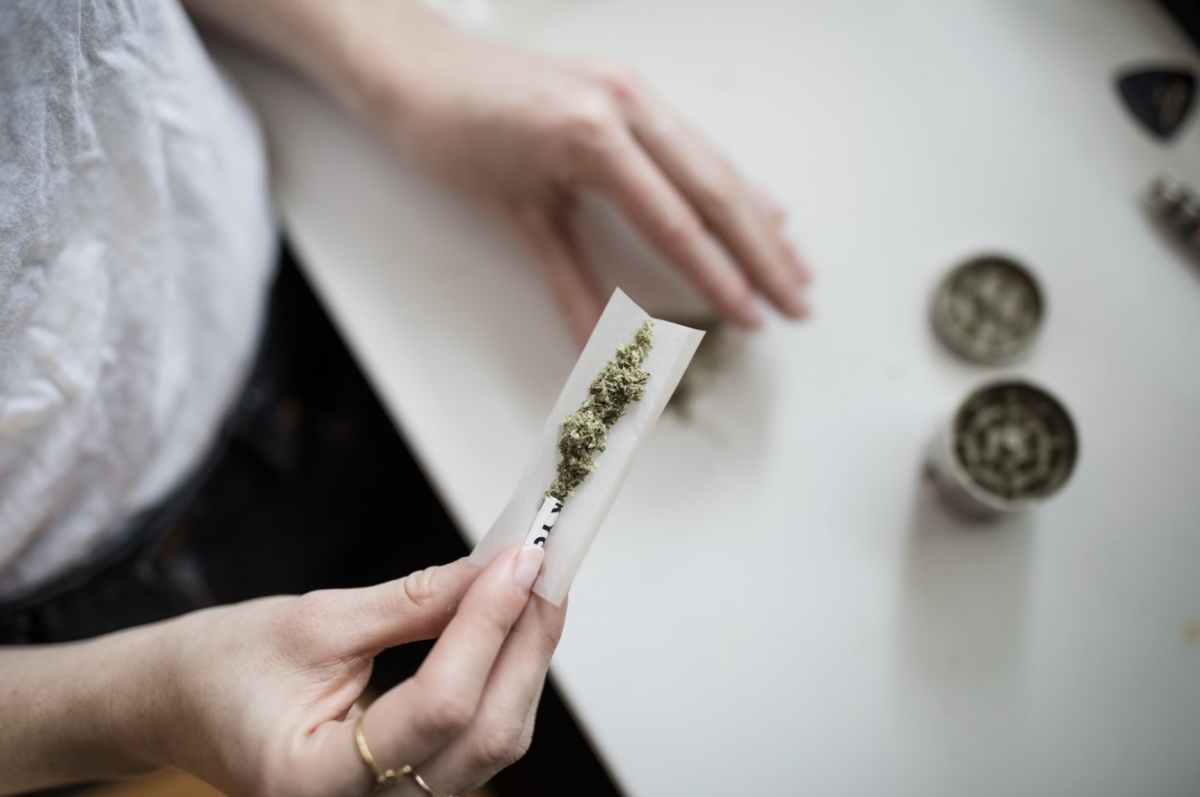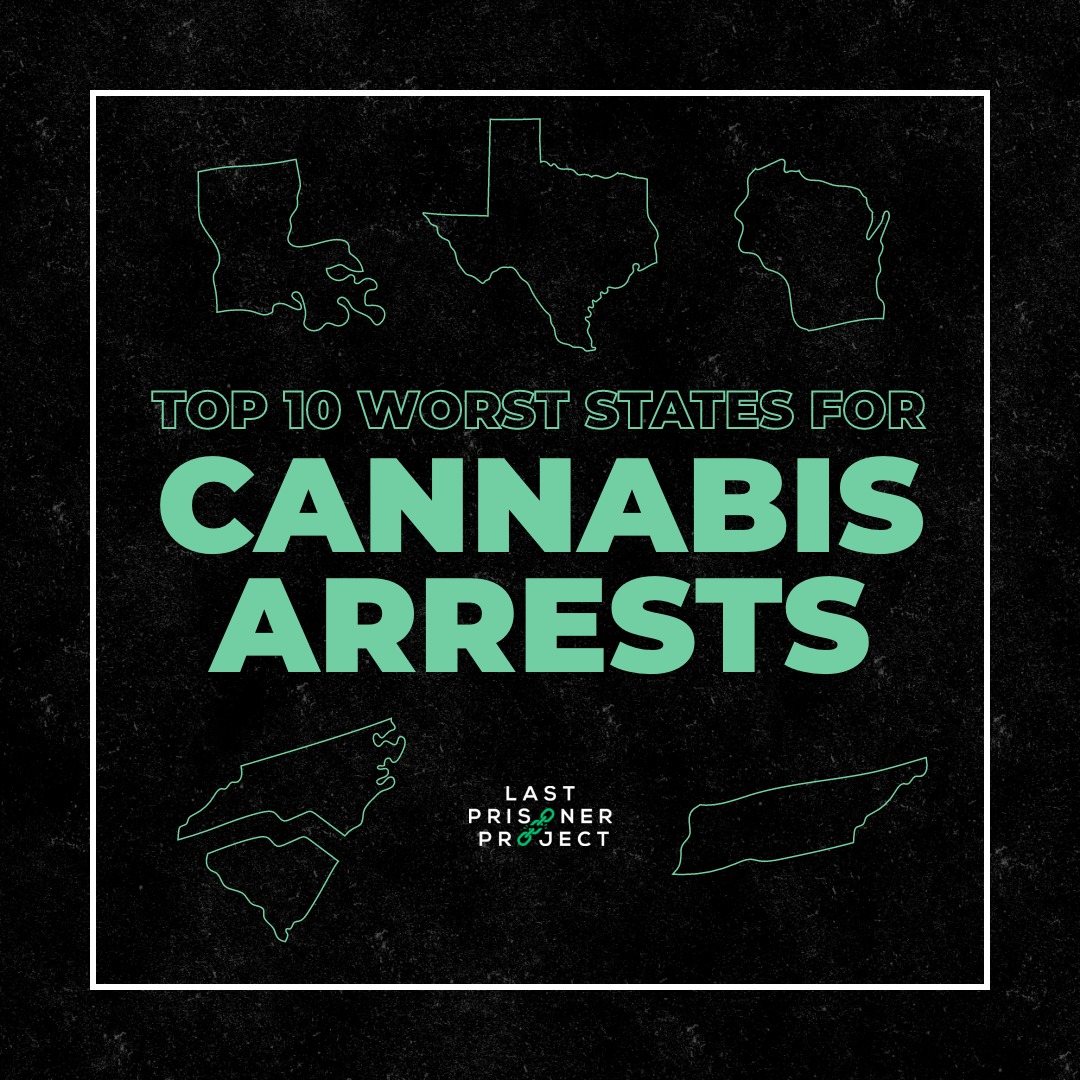
Tennessee is near the top for arresting people for cannabis and near the bottom for cannabis justice.
Those are the conclusions from Denver-based The Last Prisoner Project (LPP). The group is “dedicated to releasing every last cannabis prisoner and helping them rebuild their lives.” It works on drug policy and criminal justice reform to “redress the harms of the federal government’s so-called ‘War on Drugs.’”
The group said 14,426 people were arrested for cannabis in Tennessee in 2022, using the latest available data. The figure gives the state an arrest rate of .2 percent per the population. Cannabis arrests comprised 39 percent of all drug arrests in the state that year.
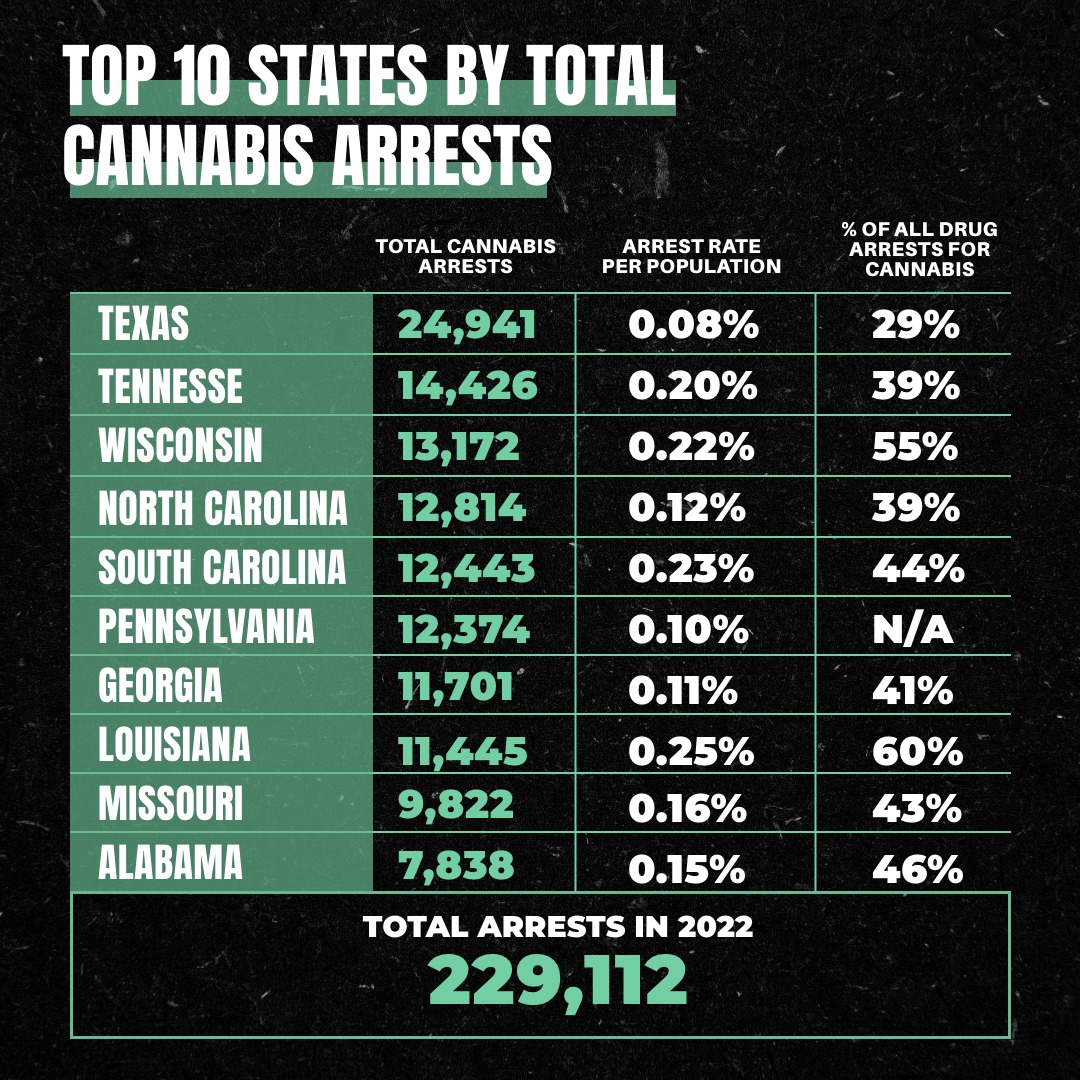
This puts Tennessee near the top in two of these rankings. Only Texas arrested more people for cannabis that year (24,941). (But given that state’s huge population, the arrests rate was only .08 percent of its population.) Only Wisconsin had a higher arrest rate for cannabis (.22 percent). In Louisiana, 60 percent — more than half — of all drug arrests were for cannabis.
But LPP admits that any real figure to determine exactly how many people are locked up on cannabis charges will be “an educated guess” at best.
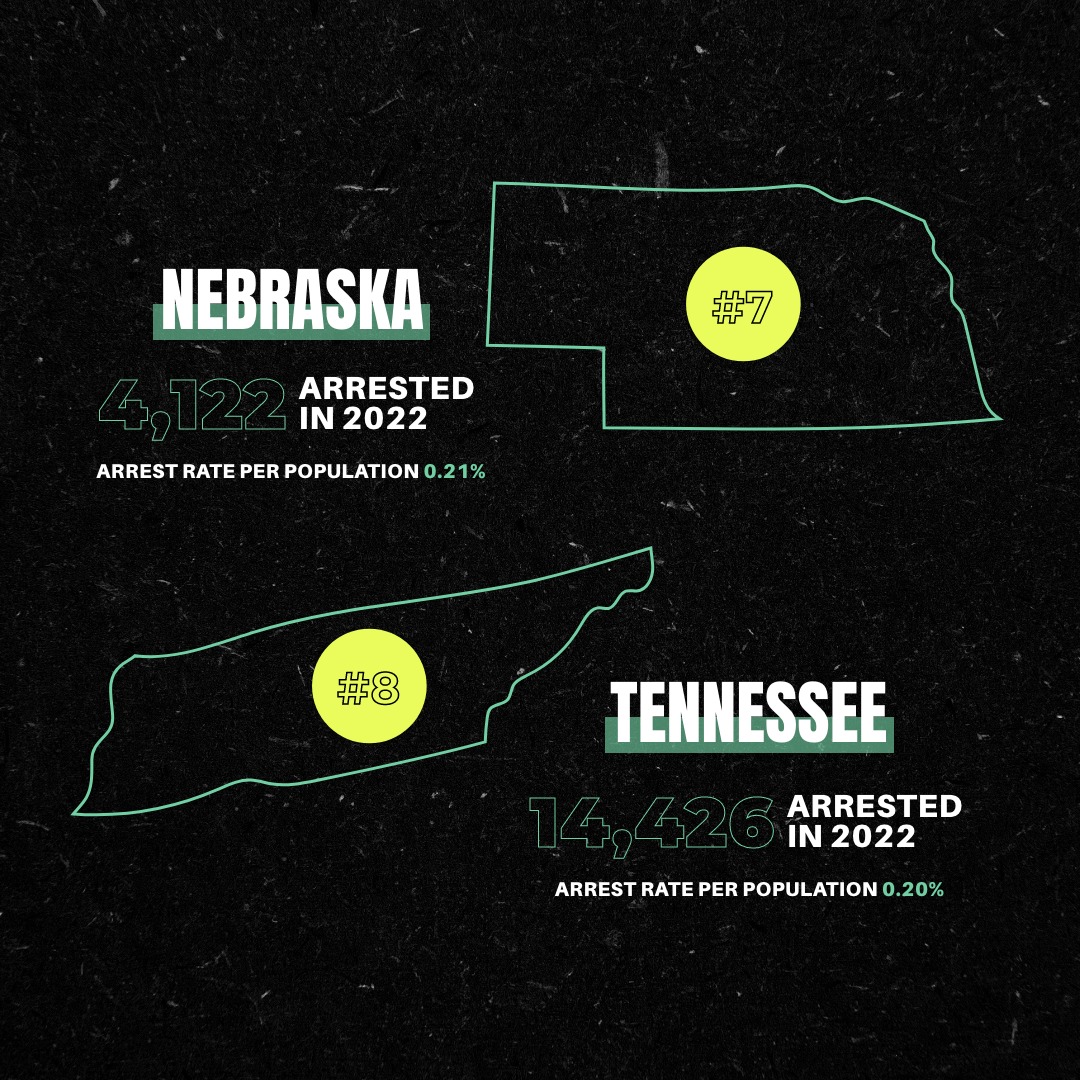
“Unfortunately, thanks to our complex and oftentimes impenetrable hodgepodge of local, state, and federal criminal justice databases nobody — not even the federal government — is privy to that exact number,” reads a blog post from the group.
However, the group’s figures (and Tennessee’s cannabis arrest rates) aren’t plucked form the air. LPP relied on two separate Bureau of Justice Statistics reports reviewing incarcerated populations by drug-specific offenses. That is, the report counted all those behind bars for drugs and what drugs brought them there.
But the figure has to be low. Those reports don’t count those in local and county jails, juvenile detention facilities, and those held for pre-trial and pre-sentencing. Also, some facilities just don’t report to the feds like they should.
“Nearly 40 percent of law enforcement agencies around the country did not submit any data in 2021 to a newly revised FBI crime statistics collection program,” according to a study from The Marshall Project. Neither New York City nor Los Angeles reported to the FBI that year, for example.
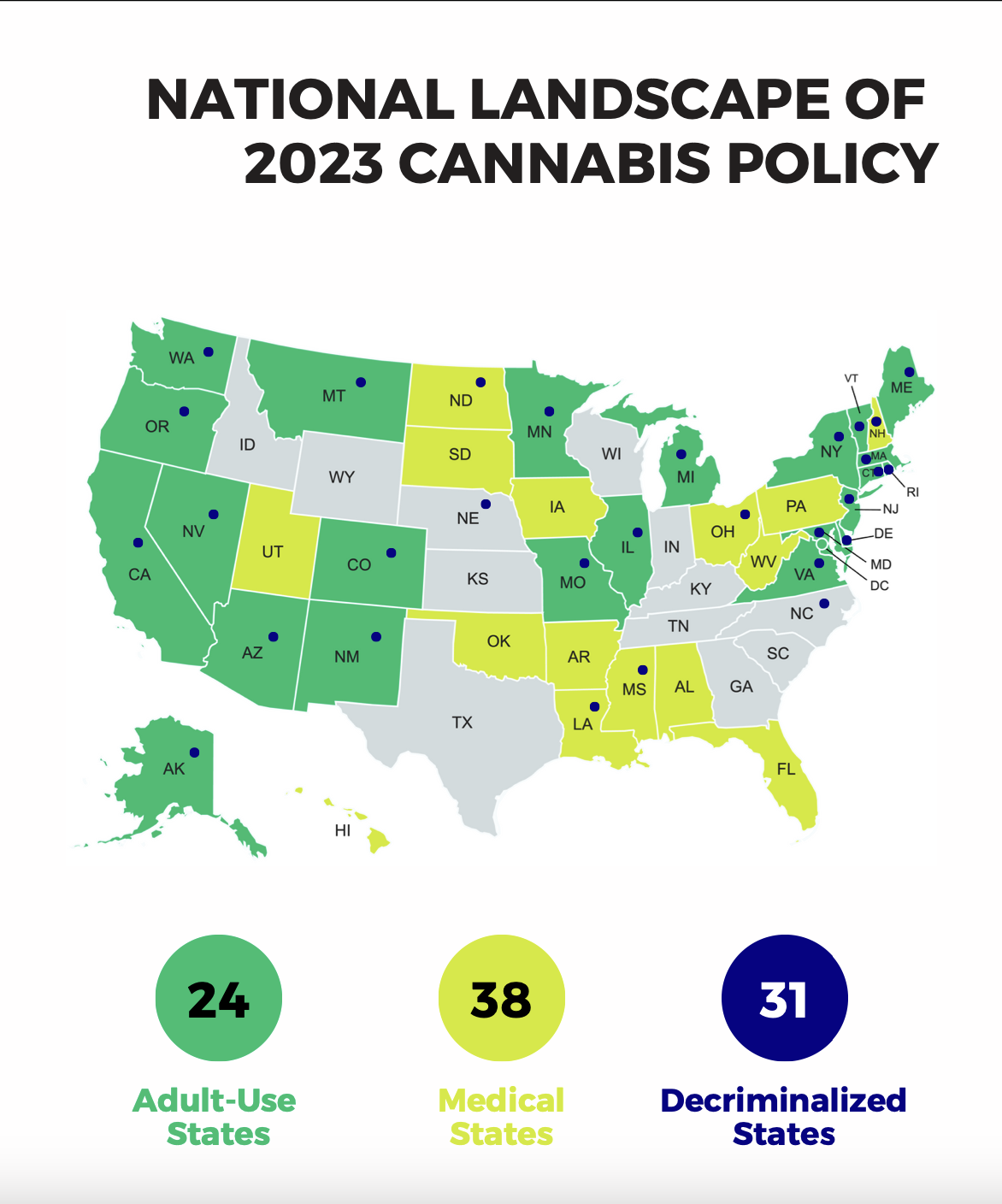
But the LPP can measure how well states help those previously incarcerated to find justice in the wake of either cannabis legalization or service of their time.
Don’t worry. Tennessee does terrible there, too. Its June report gave Tennessee a D- after earning 3 points. (California earned 25 points for scale.)
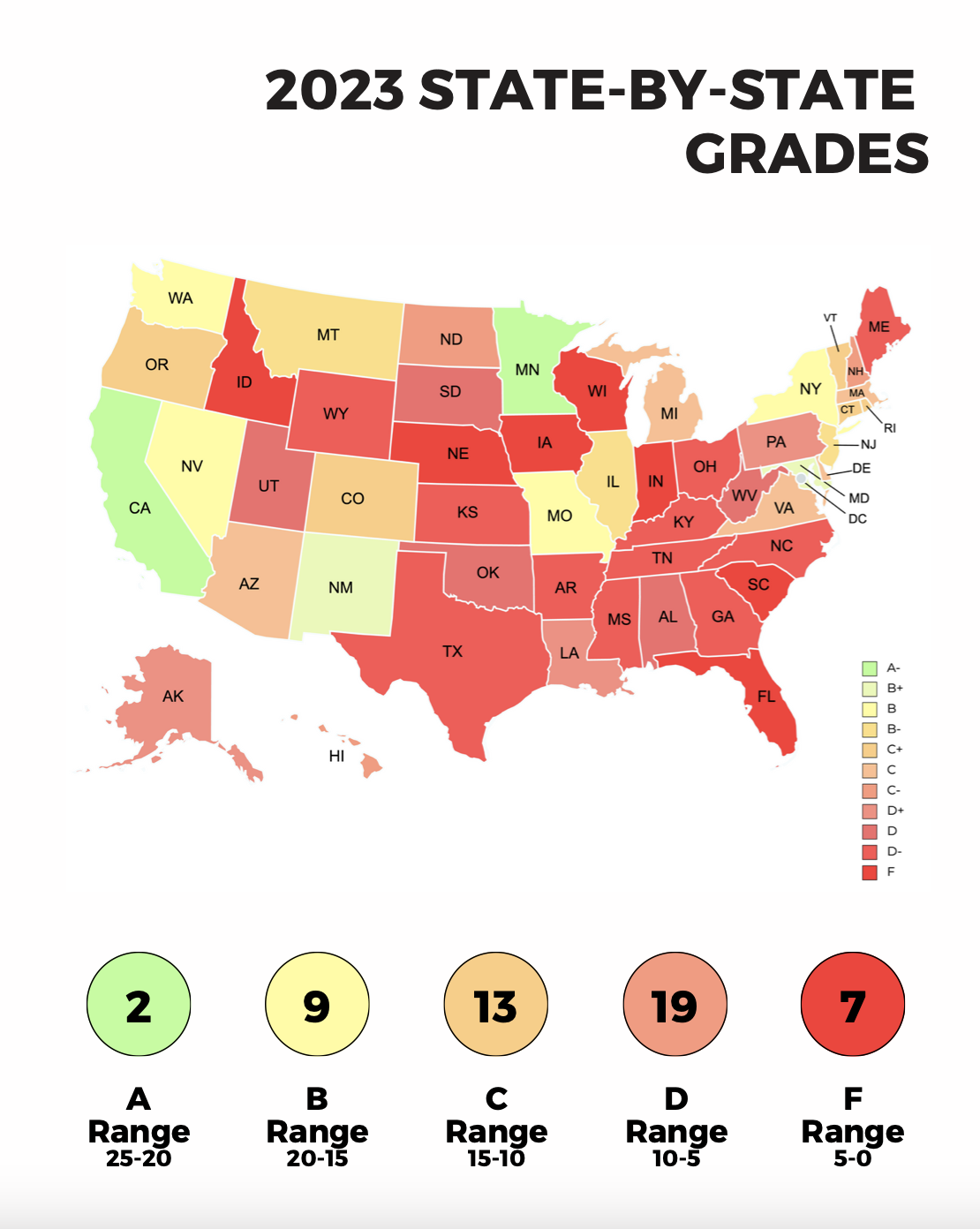
“With no full legalization, no pardon policy, no avenues for resentencing, and extremely limited avenues for record clearance, Tennessee falls behind and offers virtually no relief for individuals impacted by past cannabis prohibition,” reads the report.
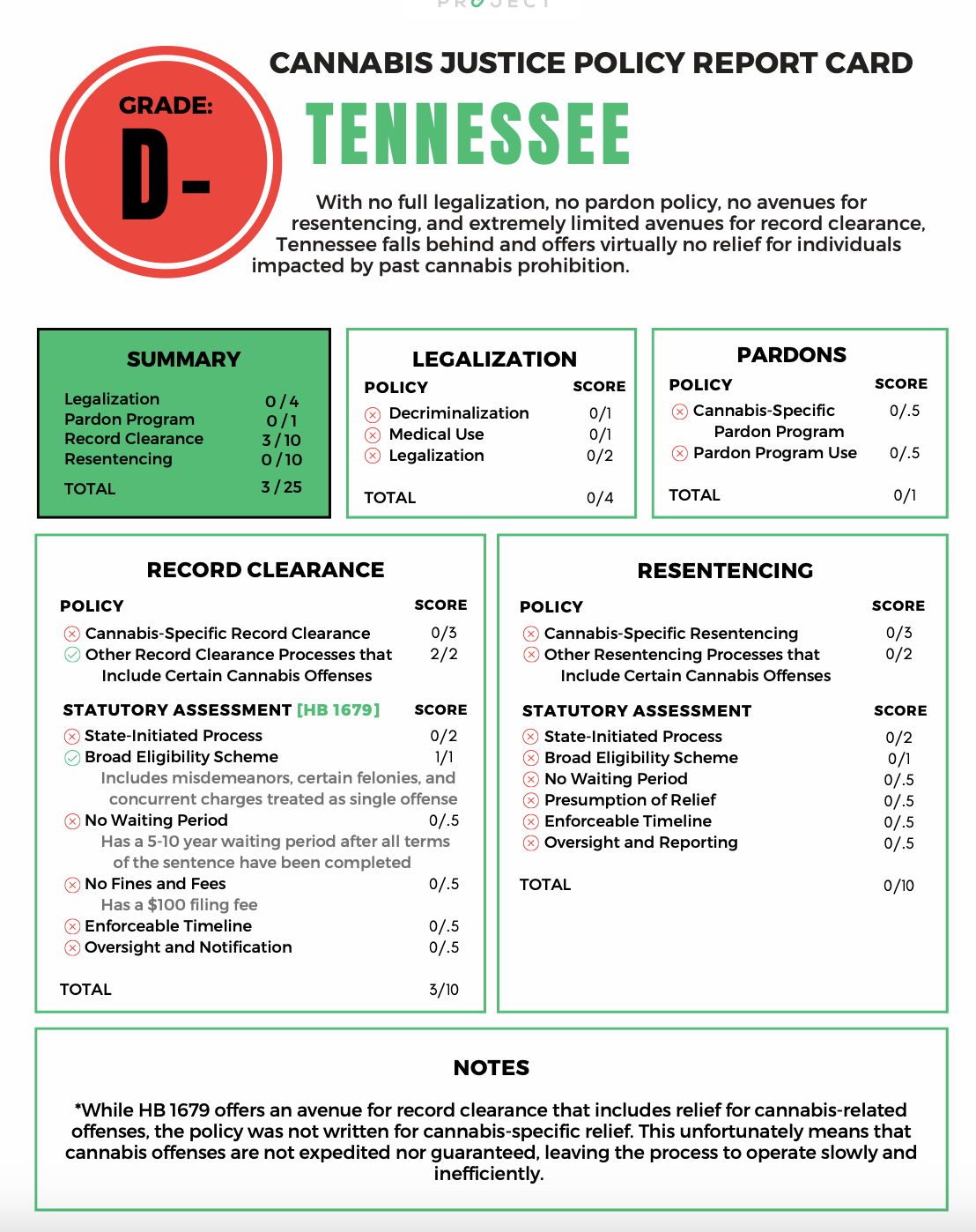
The LPP gave Tennessee two points for a law passed in 2022 that allowed for some criminal records to be expunged. However, it wasn’t written specifically for cannabis and the LPP said, “this unfortunately means that cannabis offense are not expedited nor guaranteed.”
The state’s other point in the report came as the law does include broad eligibility for different levels of offenses. Tennessee scored points only in two of the report’s 16 categories.
Don’t worry. Mississippi and Arkansas scored a D-, too. However, both states got an extra point over Tennessee for having some sort of legalization and/or decriminalization process. Tennessee has neither.
